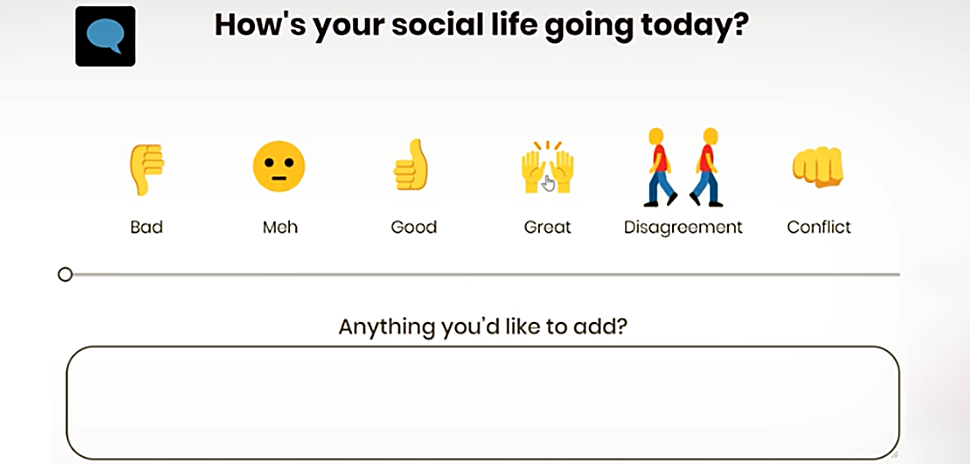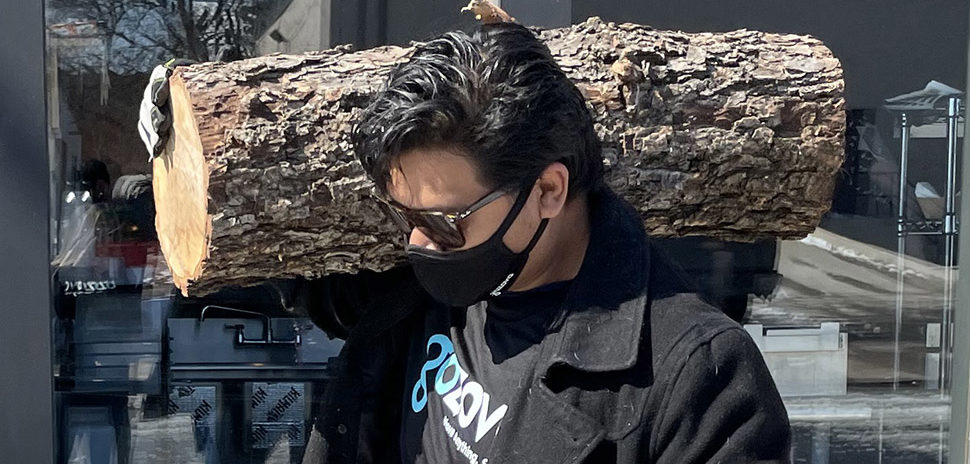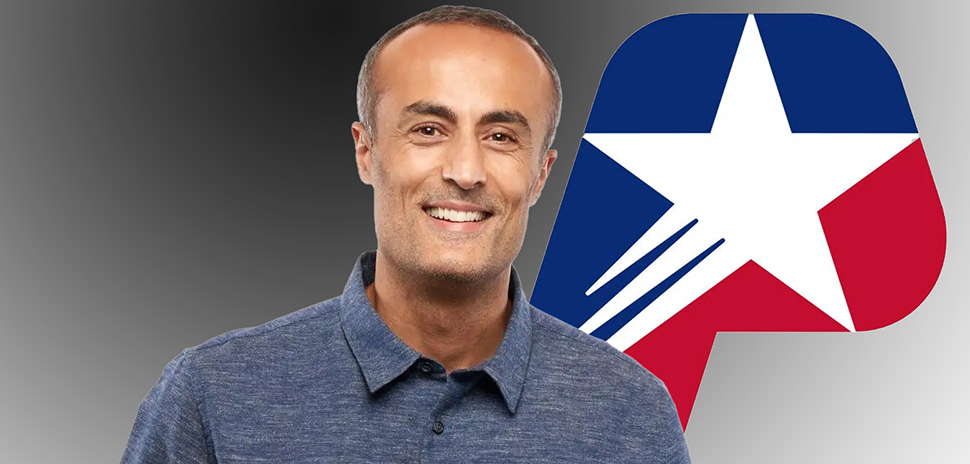![]() In this series, CEO of The DEC Network, Bill Chinn, interviews a “celebrity mentor” that is currently participating in the organization’s Fast Start Mentor Program. The program matches tenured business leaders who have handled crises before to small business owners struggling to navigate the COVID-19 crisis.
In this series, CEO of The DEC Network, Bill Chinn, interviews a “celebrity mentor” that is currently participating in the organization’s Fast Start Mentor Program. The program matches tenured business leaders who have handled crises before to small business owners struggling to navigate the COVID-19 crisis.
This week, Bill Chinn spoke with Narasimha Raju Nagubhai, Head of Global Carrier PTT Marketing of Motorola Solutions Inc., to get actionable advice for small business owners and entrepreneurs including the importance of collaboration, focusing inside rather than outside and finding strength in vulnerability.
Bill Chinn: To start things off, why do you mentor, and why do you think it is important to mentor?
Narasimha Raju Nagubhai: I’ve always had a passion for teaching. I began teaching many years ago and now I see that mentorship and teaching are no different. Both teaching and mentoring allow you to connect with people along the way. You see the importance of that connection and seeing things in their shoes. Nothing like COVID-19 has ever happened before and it’s nothing we could have ever imagined. You have to empathize with small business owners right now.
Chinn: I love that you bring up empathy—that’s incredibly important to take into account as a mentor during this time. Can you provide us with an example of someone you recently mentored, including what their problem was and what your advice to them was?
Nagubhal: Through the Fast Start Mentor Program, I was matched with a musician with only one stream of income. I would have never imagined talking to someone and ultimately mentoring someone with that background, since I do not have a music-based background, but I was able to apply my background to his challenges. I started talking to him about his online presence and how he could capitalize on that. I said, “Can you start doing live concerts on Facebook, or make videos for your social media audience?” There was one particular suggestion he jumped on, which was creating a platform wherein artists would create original music and allow fans, family, or friends to connect with them on the platform and license it. The platform would allow you to make music for your loved ones and express yourself through music. We collaborated to develop more behind the idea and it is something he is working on right now.
Mentoring reinforces a cross-disciplinary approach and that exchanging ideas is much more important than me simply giving something to someone else.
Chinn: That’s great that you were able to get together to solve a problem by brainstorming a new platform and new licensing plan to help your mentee increase his revenue. What do you recommend to other small business owners and entrepreneurs struggling through this crisis?
Nagubhal: This is the time to step back and do some deep introspection. Well-being is number one and business owners should take care of their own by helping their employees as best as they can right now. After that, they can focus on their clients. Use this time to look inside rather than outside.
Chinn: That’s great advice and something I’m definitely going to steal. I know you already touched on this a little bit, but what are some ways the mentee can bring value to the relationship?
Nagubhal: Whether you are a mentor or a mentee, we are all constantly learning. The words mentor and mentee are symbolic and those two roles can flip at any time. When I’m mentoring, I am not at a higher level or on a higher podium than the mentee. Mentoring is more about collaboration.
Chinn:I couldn’t agree more. I’m going to flip the script a little and ask, what has your experience been like as a mentee in the past?
Nagubhal: Being a mentee is very important and sometimes that relationship can even exist in silence. When you reach out to a mentor, you start to articulate in ways that you may not have been able to before. The mentor always has a different perspective, and bringing in that outside perspective can help you unravel things you normally wouldn’t imagine within yourself. Situations are always changing, so you will always need an outside perspective. It’s very important to have different people from different backgrounds to collaborate and build your network. In my opinion, everyone needs a mentor.
Chinn: Absolutely, and that’s a big part of why we launched the Fast Start Mentor Program, to connect mentors to those business owners and entrepreneurs that need it during this time. Why do you think one-on-one mentoring is so impactful?
Nagubhal: Every form of collaboration has its own set of goals and targets, focused on how that collaboration can be helpful. With one-on-one mentoring in particular, you are preparing to put yourself in the vulnerable situation of, “I don’t know what to do.” By becoming that vulnerable and getting in that one-on-one space, you are opening yourself up to a space that is free of judgment. You will see people crossing the boundaries and threshold in mentorship.
Chinn:You’re saying that the one-on-one element allows for enough trust that the mentee is able to be vulnerable in that situation.
Nagubhal: Yes. There is strength in that vulnerability and having that one-on-one interaction with a mentor definitely helps the mentee when they are feeling lost or need help.
Chinn: That’s a great way to think about one-on-one mentoring. Now, we are constantly wondering what it is our friends of The DEC Network are reading. Is there a book you’ve picked up and started reading during the pandemic?
Nagubhal: So I have to tell you that for the first time in my conscious life, I planted a plant in my garden. I have never actually physically dug a hole and physically planted a plant, so I started looking into books that were related to plants. The book is called The Hidden Life of Trees by Peter Wohlleben, and it’s all about the life of plants and trees, including how they communicate. They go at a slo-mo pace, and it teaches you that there’s a lot to learn from slowing down. When you rush through things, you miss out and can’t enjoy life.
Chinn: I’ll have to check that one out. And what about shows, is there anything you have watched on TV or a streaming service recently?
Nagubhal: I binged Tiger King because I didn’t want to feel left out.
Chinn: I think most of us have. Are there any specific restaurants around North Texas you are supporting right now?
Nagubhal: My family and I like Indian food, so we have a few nearby that we support. I really like the way these restaurants and small businesses have innovated delivery. We just pre-order our food, drive to the restaurant, and they’ll bring it out to a station on the curb that you can pick it up from.
Chinn: And lastly, what is the first thing you will do once the stay-at-home order is lifted?
Nagubhal: That’s a tough one, but I would probably just want to meet my friends. I’ve been keeping in touch with them on the phone, but I’d love to see them in person and hug them.
The DEC Network is a partner of Dallas Innovates.The 501c3 non-profit organization drives innovation and economic impact by helping entrepreneurs start, build, and grow their businesses. Through a number of innovation hubs across DFW, The DEC Network provides entrepreneurs with education, mentorship, community, and advocacy. For more information, please visit www.thedec.co.
![]()
Get on the list.
Dallas Innovates, every day.
Sign up to keep your eye on what’s new and next in Dallas-Fort Worth, every day.





































































